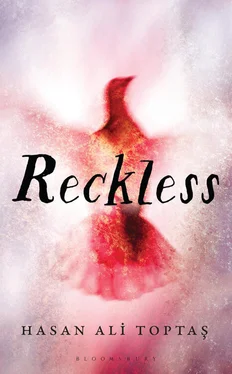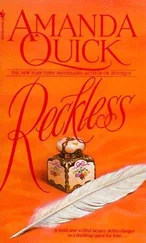‘It’s hard. Honestly, so hard. May God give you patience,’ mumbled Kenan.
They fell silent for a spell. Leaning forward, they listened to the oak leaves, rising and falling with the breeze. Then, between each rise and fall, there came the deep rustlings of the forest. And between those, there was silence, as soft as cotton wool. And between these were the moans from which that silence came, as thick as the slopes and pastures and cliffs that surrounded them.
‘So that’s why I have those lines on my face,’ said Ziya, and then he added, ‘And what happened to you, my friend? I seem to remember you were engaged when we knew each other. Do you have any children?’
‘Yes, I was engaged,’ replied Kenan. ‘And when I got back to the village, I quickly sold off a few pastures of marshy land and got married, with all the pipes and drums, but sadly the marriage didn’t last long; we divorced after four years, because we had no children, and my wife somehow decided that this must be my fault. During those four years, there wasn’t a doctor in the area we hadn’t asked for help, of course, or a hoca whose hand we hadn’t kissed, or a tree we hadn’t tied a rag around, or a saint we hadn’t entreated. We sold everything we owned around this time. All our money went on votive offerings, and doctors, and hocas . And all that time, of course, we were trying out all the treatments recommended by various famous people, just to see if they would work. . Then one day, my wife asked for a divorce, and so we did. We parted that very day, in the ugliest way imaginable. To tell you the truth, my wife did something outrageous; having packed up her things to return to her village, she ran around town as if she were holding a doctor’s report and accused me of being impotent. “You’re an impotent louse! That’s what you are — an impotent louse!” She was still in our courtyard when she started shouting, as loud as she could. That uncle of hers with the goitre — he was waiting outside in his car, and when she got in, I thought it would end there. But no. She kept going. She rolled down the window and stuck out her head and until they reached the edge of the village, she kept shouting, as if I had chased after her, as if I was still there. “You’re impotent! An impotent louse!” But I was dumbstruck, I couldn’t speak, let alone move. I just stood there, gaping. And for a time, everyone else in the village stood there, too, in their doorways, at their windows, pressed against the walls. But once the car was gone, and the clouds of dust had settled, they turned around and looked at each other. And that became my nickname. Impotent. And it wasn’t long before the whispers had gone beyond our streets to the towns and villages around us. I couldn’t look anyone in the eye. Even knowing that the charge was false, I bowed my head like a guilty man. A few years later, I decided I should find a good woman to take as my wife, but no one would have me. I searched and searched, but I found no one, and that was when I came to understand just what an evil thing my wife had done to me, with just a few words. All she’d had to do was shout a few words on her way out, and she’d destroyed my future. Do you know what? It’s something I just haven’t managed to fathom, how after four years of two people putting their heads on the same pillow, one of them could do such a thing to the other. How there is no memory left of the first day they set eyes on each other on this earth, no memory of kisses or caresses. When I think about such things, it still makes me angry. What a strange word that is, anger. For months and months, I held this huge grudge against her. Then one day it occurred to me that if I shouted out the same sorts of words as my wife had done, I would destroy her future, too. And then I thought, the poor woman, what could she have done, maybe this was why she was in such a hurry. And then, I don’t know how this happened exactly, but suddenly I felt some compassion for her. My resentment went, and my anger, too. It was as if I understood her a little. Yes, I understood her, just a little. Hazy as it was, I had some understanding of what was lying underneath those words of hers. And sometimes, when I come up to this forest to chop wood, I look at the trees around me, and the cliffs, and the grass, and the tortoises rustling through the undergrowth, and the snakes sliding into view only to vanish a moment later, and all the insects, and all the birds, and almost always, I think, what a shame it is that my wife and I could not enjoy these things together. Anyway, after that various relatives and village elders got together to find me a new wife, only to return from every house they visited empty-handed. My name had gone before me, and unless I produced a certificate proving I wasn’t impotent, there was nothing I could do. To make a long story short, as one year followed another, and I got older and older, the whole thing began to seem too complicated and I gave up on the idea of marrying, and accepted my fate. What else could I do? I told myself that this was the fate our Lord had written for me. So there’s no family, and no children; just my mother, my sister, and my nephew and me, living together in one house, and doing the best we can.’
‘Damn it,’ said Ziya, shaking his head. ‘You’ve really gone through hell.’
Kenan said nothing as he slowly lit himself a cigarette. Resting his head between his knees, he exhaled into the grass. The ants passing through paused for a moment, as if stunned by the curls of smoke, and then the line began to move again. When he noticed this, Kenan held his breath and looked anxiously into the grass, to see if any ants had died.
‘Shall we get going?’ asked Ziya.
‘Yes, let’s go,’ said Kenan.
And so they stood up, leaving behind them a little mound of cigarette ends, and headed back down the same thyme-scented path they’d struggled up earlier.
‘You’ve changed a lot,’ said Kenan, as they made their way through the juniper bushes. ‘You’re not at all like the person you once were.’
‘If you ask me, some of the differences you’re seeing are differences in yourself,’ said Ziya, giving him a sidelong look.
To himself he said: ‘It’s been thirty years since we last saw each other, for goodness sake! How could I not have changed?’ But he decided it was too trite a thing to say out loud just then. And anyway, he could see the view again, through the gaps in the juniper bushes, and that took all his attention. There were poplars in this view, and sheep pens, and barns, and part of the village, and a sort of pure silence that seemed to promise peace.
And that was why, when they stood before the barn again, he said, ‘I’m sure now. I’m sure that I’ll spend the rest of my life here, in peace.’
‘May God grant your wish,’ said Kenan.
‘If you ask me, it couldn’t be any other way,’ said Ziya, and he drew an arc in the air. ‘Look at this greenery, this tranquillity, this purity. Everything is exactly as I wanted. I was so tired of dealing with life’s chaos. I wanted to live a simple life, where one plus one equals two; and this is a place where such a life is possible. Yes, it really is. A place where a person can live in peace.’
Not knowing what to say, Kenan smiled faintly.
The next day began in happy anticipation at the house Kenan shared with his family. Cevriye Hanım, already in her white headscarf, was pacing back and forth, pausing from time to time to issue brief instructions to Besim, and sometimes she crouched down next to Nefise to knead the dough and see if it was aerated enough, and whenever she stood up again, she told her to hurry up, but also to make sure she had enough dough for the gözlemes . Kenan was there, too: having brought in a few armfuls of oak logs to set down next to the pot-bellied stove, he was now standing by the wall like a dark and weedy ghost. In the corner of the courtyard, in front of the ash cans, the sun was shining brightly, and so, too, were the chickens strutting back and forth. And birds were twittering in the mulberry trees, and beyond the wall, the city shimmered green to the left and blue to the right, while sounds of all colours flowed between them.
Читать дальше












